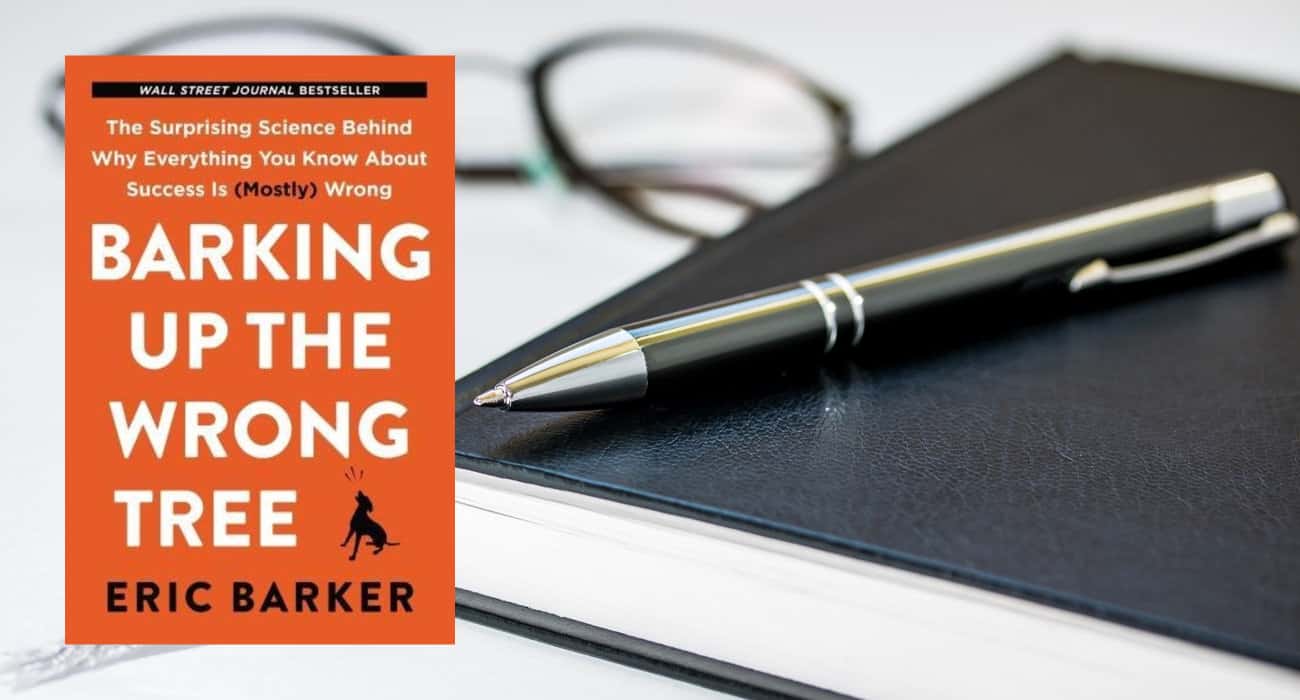Barking Up the Wrong Tree


I’m fed up with self-improvement books. I’ve read so many that I’ve become a bit cynical. Yet I find myself occasionally falling for another one, almost like I can’t help myself.
While on my vacation, I found myself reading Barking Up the Wrong Tree: The Surprising Science Behind Why Everything You Know About Success Is (Mostly) Wrong. It was enjoyable enough to qualify as good beach reading, and helpful enough to overcome my cynicism toward books of this kind.
Familiar Questions
Barking Up the Wrong Tree answers familiar questions:
- What really produces success?
- Should we play it safe by the rules, or take risks?
- Do nice guys finish last?
- When should we stick it out, and when should we quit?
- Is confidence a good thing?
- How do we find work-life balance?
Half of the challenge in finding good answers is asking good questions. From a Christian point of view, we may want to ask a different set of questions: how can we live in line with how God created the world? How can we make sure we’re living for what matters most? But the questions contained in the book are helpful and interesting.
Different Answers
Barking Up the Wrong Tree promises something different: answers from science. That may be overselling it a little. I’m not sure that science has unlocked the secrets of how to live a successful life, and I know enough about science to understand the limits of scientific studies.
Barking could be subtitled “interesting anecdotes about success with some science sprinkled in,” but I’m not sure the publisher would have liked that as much.
One of the most interesting parts of this book are the stories about:
…crazy cyclists, people who don’t feel pain and fear, oddball pianists, serial killers, pirates, prison gangs, Navy SEALs, Toronto raccoons, Shaolin monks, how long you can be Batman, Erdös numbers, Newton and Einstein, Ted Williams and Spider-Man, radar wars between Harvard and MIT, ghost armies and hostage negotiators, the emperor of the United States (may he rest in peace), confident chess computers, Japanese wrestlers with orange hair, Genghis Khan, and a guy who flew around the world just to say “Thanks.”
That’s what made this book so enjoyable to read on the beach. The author, Eric Barker, knows how to spin a tale.
While I’m not convinced that this book provides the scientific key to success, I appreciated many of the insights. It’s important, for instance, to understand our strengths so that we can create the most value. The people we work with will change us more than we’ll change them. Grit matters more than talent. Developing self-compassion is more important than developing self-esteem. The insights in this book are sometimes different than you’d expect, and always entertaining.
Takeaways
I walked away from this book with some good reminders:
- Be clear about your strengths, and focus energy where you can offer value.
- Choose the people you live and work with carefully, because they’ll influence you more than you will influence them.
- Focus on the few things that matter most, and ruthlessly eliminate almost everything else.
- Apart from your focus on the few things that matter most, spend 5-10% of your time on little experiments so that you keep growing.
- Make time for the people who are important to you. Listen.
- Forget about confidence and self-esteem. Focus instead on building self-compassion.
- Decide when to quit work, and plan backwards to get your most important work done. Do your best work when you’re at your best, and do the rest of your work in batches.
- Don’t just dream. Don’t just work. Spend some time dreaming, and then spend lots of time working.
That’s a lot. Most of this isn’t new advice, but if you’re like me, you’re not following all these principles. As someone who tends to work too long each day, I especially appreciated the reminder to set a quitting time and to plan backwards, and to focus on the few things that will move the needle.
Recommendation
I’m cynical about self-help books, but found this one helpful. If you’re looking for an entertaining book that will help you rethink your practices, then you’ll enjoy this one. It’s not only a fun read, but it just may help you become a little more productive and wise in how you live your life.
More from Amazon.com






